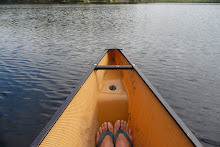The last two assignments of the first week provided much to think about and a few pleasing moments of insight. The first one was to take a picture of some everyday, commonplace occurrence/thing and explain some interesting physics behind it. I was completely at a loss ! Nothing seemed interesting suddenly and everything I could explain seemed trivial. We were supposed to give a 10+2 minute presentation introducing some of the concepts on Friday, so we had 3 days or so to prepare. I took pictures of clouds, confident that clouds would provide something, Rayleigh scattering if nothing else. But then, I hit on a much more interesting angle - the Fractal nature of clouds :)
That turns out to have some very interesting concepts and Im uploading my presentation here, at some later date Ill include a voiceover which will explain the slides as well, but this will already give interested people some terms to google and some papers to look up.
The other assignment was to do a live demonstration in front of the class and illustrate some interesting physics. Our group decided to do the Feynman sprinkler experiment mentioned in the brilliant book "Surely You're Joking Mr Feynman !". This basically involves a sprinkler system submerged in water. When it is ejecting water, it is obvious in what direction it will spin. However, when the question is posed, what if it is sucking in water ? what direction will it spin then ? In the book, the folks at princeton never did reach a conclusion and the experiment was never completed since the vaccum pump Feynman and co were using to suck up the water blew and messed up the lab.
This seemed like the ideal opportunity for us to try it out. The gentleman at the hardware store was extremely helpful and even provided us with a pump and so on. We did the experiment, and it turns out that when water is sucked in, the sprinkler does not spin. There were heated arguments about time symmetry and why this could not possibly be right. There were some explanations on the net which were not entirely convincing. After much head banging, I came up with a momentum based picture which seemed to satisfy most people (might put it up here at some point) and Henry came up with an even simpler way of looking at it using gas pressures.
Im sitting in the Breakfast room on Monday morning and Dr. Nima Arkani-Hamed from the Institute of Advanced Physics at Princeton just arrived. We are going to spend the week with this famous genius, and no one knows what he is going to talk about :) :)
what a place !!
update : Ended up having breakfast sitting with Neil Turok (TED prize winner and famous cosmologist, head of PI among other things)
but Nima Arkani-Hamed is an absolutely brilliant lecturer ! This morning has already been exhilarating and there is more to come after lunch. Ill write about it before I sleep tonight. Profound, brilliant insights into physics in general.
That turns out to have some very interesting concepts and Im uploading my presentation here, at some later date Ill include a voiceover which will explain the slides as well, but this will already give interested people some terms to google and some papers to look up.
The other assignment was to do a live demonstration in front of the class and illustrate some interesting physics. Our group decided to do the Feynman sprinkler experiment mentioned in the brilliant book "Surely You're Joking Mr Feynman !". This basically involves a sprinkler system submerged in water. When it is ejecting water, it is obvious in what direction it will spin. However, when the question is posed, what if it is sucking in water ? what direction will it spin then ? In the book, the folks at princeton never did reach a conclusion and the experiment was never completed since the vaccum pump Feynman and co were using to suck up the water blew and messed up the lab.
This seemed like the ideal opportunity for us to try it out. The gentleman at the hardware store was extremely helpful and even provided us with a pump and so on. We did the experiment, and it turns out that when water is sucked in, the sprinkler does not spin. There were heated arguments about time symmetry and why this could not possibly be right. There were some explanations on the net which were not entirely convincing. After much head banging, I came up with a momentum based picture which seemed to satisfy most people (might put it up here at some point) and Henry came up with an even simpler way of looking at it using gas pressures.
Im sitting in the Breakfast room on Monday morning and Dr. Nima Arkani-Hamed from the Institute of Advanced Physics at Princeton just arrived. We are going to spend the week with this famous genius, and no one knows what he is going to talk about :) :)
what a place !!
update : Ended up having breakfast sitting with Neil Turok (TED prize winner and famous cosmologist, head of PI among other things)
but Nima Arkani-Hamed is an absolutely brilliant lecturer ! This morning has already been exhilarating and there is more to come after lunch. Ill write about it before I sleep tonight. Profound, brilliant insights into physics in general.



